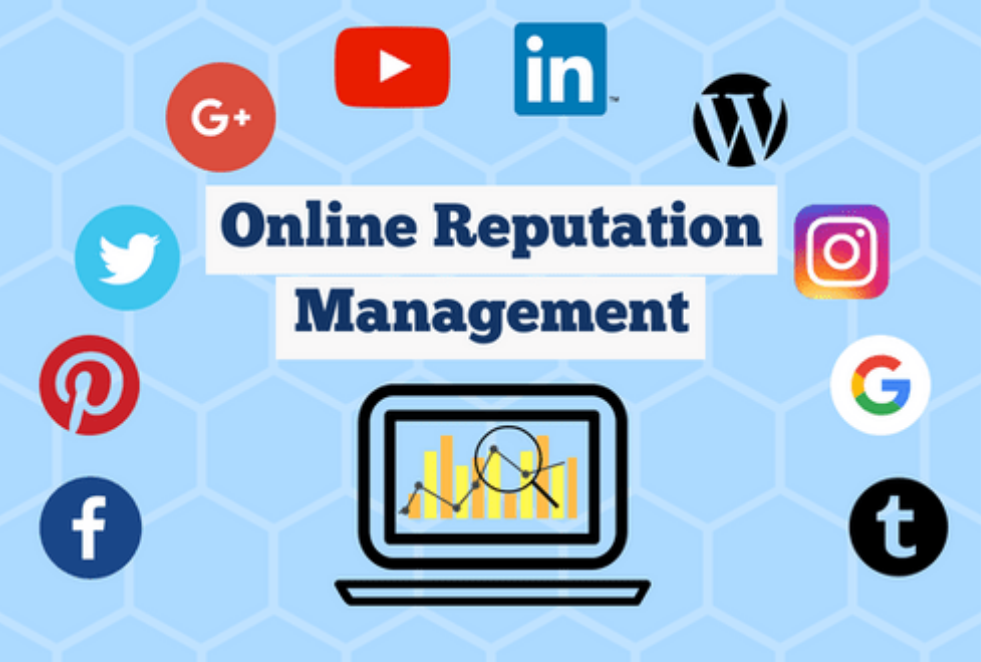Online Reputation Management (ORM)
Online reputation management (ORM) is the process of making plans that shape or change how people think about a company, person, or other entity on the Internet. It helps shape how people feel about a business and the goods and services it sells. Online reputation management uses a mix of marketing, search engine optimization [SEO], and public relations strategies to promote and protect an online image. Online reputation management (ORM) has become an important way for businesses to track and understand how their brands are seen online.


Online reputation management is important because it lets businesses keep a close eye on their online reputations. Since online content changes all the time, people’s ideas about a brand can also change a lot. Businesses need to find out what people are saying about them online and how they can make things better if people have a bad opinion of them. Research shows that more than 40% of digital marketers keep an eye on their company’s brand every day, while others do it every hour. Companies can avoid losing a lot of new business leads and sales by keeping an eye on their online reputations on a regular basis. As part of their digital marketing strategy, businesses must also put money into online reputation management so they don’t hurt the reputation of their brand.
The benefits of using online reputation management software
It boosts sales
Before buying a product or service, most people look for information about it online. Before buying from a certain brand, they read online reviews to find out what other people think of the brand and the products and services it offers. When people write good reviews about a business online, they tend to get more customers. Companies that are seen in a bad light or get a lot of bad reviews to miss out on big profits and opportunities. This is why online reviews are so important for businesses.
It helps to build a brand image
When people say bad things about a brand on the internet, most people stop buying that brand. So, this could hurt the business in the end. They can lose all of the respect they’ve earned over the years they’ve been in business in an instant. But if a business has a good plan for managing its online reputation, it can help them build the reputation of its brand. Companies can build the image they want for their brand by keeping an eye on how people react to them on all of their communication channels.
Improves visibility
It’s very important to be seen on the internet. A well-made website with lots of content or company blogs are great ways to do this. To make the most of these online opportunities, people use social media sites like Facebook, Twitter, and YouTube. All of these are great ways to market your business. But they need good management to deal with the daily tasks of users. The best way to keep track of these kinds of common user actions is to use software for managing your online reputation.
Builds trust and credibility
On the internet, especially on social media sites, anyone can say what they think about anything. Most people buy brands they are familiar with and trust. Every business needs trustworthy people. Because of this, businesses need to find ways to earn the trust of their customers. Staying away from bad reviews is one of the best ways for them to do this. People don’t want to do business with a company that has a bad reputation. When you use good software to manage your online reputation, it makes sure that social sites and search engines only show content that helps your brand.
It generates good business insights
A good plan for managing a business’s online reputation can give them good ideas for how to raise brand awareness. Each review is important because if it focuses on the right channel, it can be a great way to bring in new customers. Businesses get feedback from the reviews, which can help them improve their business and even plan for the future, especially when a new product or service is coming out. Even if a review isn’t good, the people in charge of a company’s reputation can fix what’s wrong. Once you start doing this, you’ll see how helpful it is to manage your online reputation.
5 Online Reputation Management Strategies

Answer Promptly and With Empathy
Sometimes the best ORM happens before a bad review or comment is made public. If a customer sends you a message or posts on social media with a question, you should answer right away.
A Clutch survey found that 83 percent of people expect responses to social media comments within a day or less, so don’t wait too long. Quick responses keep angry users from leaving bad reviews and show the customer that you care a lot about helping them. Responding with empathy is just as important.
Address Negativity Up Front.
It can be tempting to ignore customer complaints and bad reviews. After all, why would you want to make them stand out by talking back? But the truth is that ignoring unhappy customers is not good for your business. Eighty-two percent of people who read online reviews also read the business’s response. By responding to negative reviews, you can show customers that if they have a problem with your business, you will be there to fix it. So, always answer when customers leave bad comments and reviews. Be patient and determined as you try to solve their problem. This is how Peloton, a company that makes exercise equipment, always responds to negative reviews posted on their website.


Own Up To Your Mistakes.
If your company is being looked at because of a real or imagined scandal, it always helps to say you’re sorry. Showing regret calms down angry customers and builds stronger relationships with them. It also lets customers know that your business is honest and open. Make your apology with a sincere desire to own up to your mistake and fix the problem. Address the main concerns that customers and the media have brought up, and explain what you will do to fix the problem. Think about how you will say sorry as well. If most of the negative feedback is on social media, for example, that would be the best place for you to post your response. Starbucks apologized to the public on Twitter after two black men were arrested in a store in Philadelphia.
Don’t let your search results slip.
SEO is thought of by most marketers as a way to keep their brand visible. But it’s also an important tool for keeping bad press and content about your brand from getting out there. You want your company’s page to come up first when someone searches for your company’s name. After all, more than 31% of all clicks go to the first result on SERPs, and customers are 10 times more likely to click on the first result than on the tenth result. Use an anonymous window to check out what people see when they search for your brand. Competitors can bid on your branded keywords to get their information to show up first, so you may have to bid on your own keywords to stay at the top. When you Google Taskade, for example, the first few results are all about the company, like their business page, main page, social media, and good reviews.


Automate Online Reputation Management.
You can save time by using software that automates ORM tasks instead of going through websites and social media on your own. Google Alerts is one of the easiest ways to keep an eye on things. Just put your brand’s name into the tool, and you’ll get alerts when the media or news talk about your company. So, you’ll know right away when someone talks about your company, and you can act quickly if you need to. Brand24 takes things a step further. It doesn’t just crawl news stories; it also checks social media to see if your brand is mentioned there. It can even do a “sentiment analysis,” which looks for keywords that show how people feel about your brand and tells you how they feel.
How does online reputation management work?
Online reputation management uses a mix of marketing, public relations, legal, and search engine optimization (SEO) strategies to promote, protect, and defend your online image or business reputation.
Google uses a complicated algorithm to figure out what search results go on which page. Content with high authority is likely to show up in the top results for any search term, while content with low authority may not show up at all. Reputation management companies try to change search results by making positive content more authoritative and visible in search results. This is done to promote a company, product, or person.
Even though each reputation management campaign is different, the best online companies will usually use some of the following strategies:
- Monitoring online mentions of a person or brand and setting up a quick, well-thought-out response
- Putting well-written content on trusted websites with a high search engine authority and a lot of traffic will give it the most exposure.
- Putting links to positive, high-impact web content.
- Optimizing websites and social media profiles that already exist so that they rank higher in search results for certain keywords.
- Getting in touch with the source to change or remove bad information.
- Taking the search engine or website owner to court.
- Encourage good reviews from customers.
- Marketing with Articles and Content to Blogs, News Sites, and Web 2.0 Sites.
- Creating a business profile.
- Social Media Profile Optimization.
- Sending out press releases.
- Hold contests and give things away.
- Watching Your Online Reputation.

What is the role of ORM in digital marketing?
Online Reputation Management, which is what ORM stands for, is an acronym. ORM is just a mix of traditional marketing, marketing through search engines, and public relations. When starting a business, people have a clear goal and point of view. How people see your business when it’s online and seen by a large number of people is an important question to ask. ORM is a process that involves keeping an eye on SERPs (search engine result pages) and comments on social media, responding to them, or making them less of a problem. Digital marketing has grown so much that it is now easy for businesses to have a good online presence (Website, social media handles). Even so, we shouldn’t forget about the competitors who hurt the organization’s reputation by writing bad reviews and giving bad feedback.
When businesses put money into ORM, they saw a 25% increase in sales. Because of this, it is very important for businesses to protect their brand image, which they can do with a good ORM platform. ORM is a part of digital marketing that helps businesses build and keep a good brand image on the internet. Any negative attacks on your reputation are easy to deflect and make less of a deal of. If any of your personal information is leaked online, ORM can help take it out of “people search” databases where it could be seen by the public.


What factors influence your online reputation?
What you post online and what other people say about you or your business online can affect your online reputation. Your online reputation is made up of all of the positive, negative, and neutral content that shows up when people search for your name, company, brand, products, or services online.
We live in a very open time, and people and businesses often get their first impression of someone or something online. The way we think about our own privacy and the privacy of others is changing in very big ways. Getting around in this brave new world is scary. What we see online is not a true reflection of what’s going on in the real world. We help our clients regain control over how their name or brand is seen online and bring back what may have been lost along the way.
Need for orm in digital marketing
There are three main reasons why you need ORM for your business:
The reputation management phase
Even though you’ve built a good reputation in the market, keeping it that way is a constant challenge. This is where a skilled ORM team comes in.
The ORM team will know how to keep good relationships with your customers and track the reputation of your brand across all search engines without any trouble.
The recovery phase
Most businesses have had to deal with an angry customer or a competitor who tried to hurt the business’s reputation. This can lead to negative comments and reviews, which call for a change right away. During the recovery phase, the ORM team uses its skills to make up for the damage done to the brand name. They organise their tasks so that they take care of the company’s SEOs, social media content, and, most importantly, website content that has been changed to use their brand name.
Monitoring and controlling phase
Both big and small businesses have rivals that can come up with dangerous plans to hurt them. With an ORM platform, you can keep a good handle on threats and bad things that could happen to your brand name. ORM tools can help you make sure that negative comments about your brand don’t overshadow it. They can also help you improve your social presence, customer service, and sales.
FAQs
Reputation management is the process of protecting a person’s, company’s, or organization’s online reputation to change how people think of them. Internet reputation management makes sure that people searching for your brand online and search engines find the right information.
Reviews and star ratings show what other people think, which helps consumers cut down on their research and make decisions faster and with more confidence. Great reviews not only help people trust your business, but they can also help you move up in the search engine rankings.
This can be different depending on what kind of attack it is. Depending on how much negative content there is, it could take anywhere from a few weeks to a year for your online reputation to change in a significant way.
A plan must be made to figure out how to stop these attacks, what kind of attack they are, and where they are coming from. The strategy must include search engine optimization techniques, the goal of which is to hide negative information about a person or company from the public on the internet.
Yes! Customers also like to use social media to promote a business or talk about problems they have with it. So, you also need social media accounts to keep track of what people are saying about your business. If someone says something mean, you can quickly talk to them and solve the problem. On the other hand, if someone writes a great review, you can share it on your channels.
The services we offer are chosen based on what you need. We do an analysis to make a custom plan that can include Online Privacy Management, Personal Brand Management, Reputation Management, and/or Google Autosuggest campaigns. CEOs, actors and other well-known people have been able to use these services for years. We give people these ORM options because everyone should be in charge of their own online reputation.
Yes, you can. But as your brand grows, you may quickly feel like you can’t keep up. Reputation management isn’t too hard for an individual, but businesses should hire someone or set up a system to take care of it.
If you own a business, you should think about getting a solution for managing your reputation that automates the creation and monitoring of reviews. Even if you only have a small business, a management solution will save you a lot of time and hassle. Also, any company that is medium-sized or larger should already have a plan for managing its reputation, whether it’s software or a specialist.
Google is the most popular and used search engine. Their index includes more than a trillion pages, and every day it grows by billions. Yahoo, Bing, Ask, and AltaVista is the next four best search engines.
If there is bad information about a company or person that ranks high on search engines, it can make people less likely to visit that site or buy something from that company. This makes customers less likely to use your services and more likely to go with a competitor who doesn’t have any bad reviews or information online. Search engines have a lot of power over how people are seen online.


